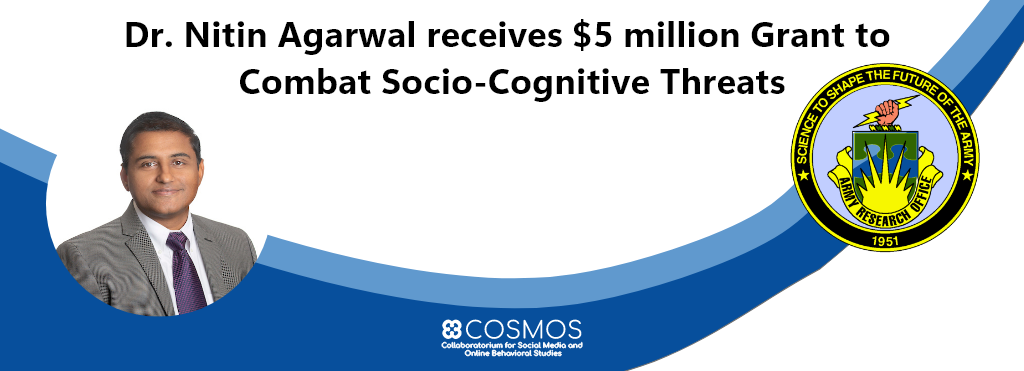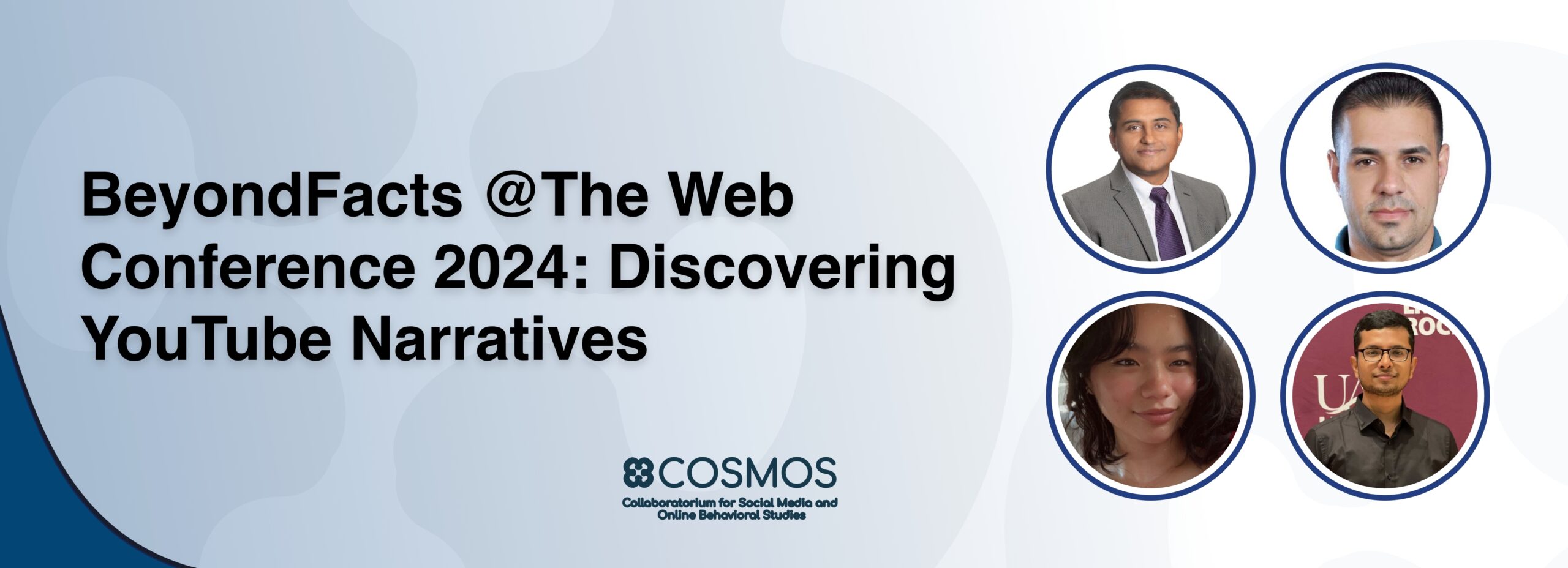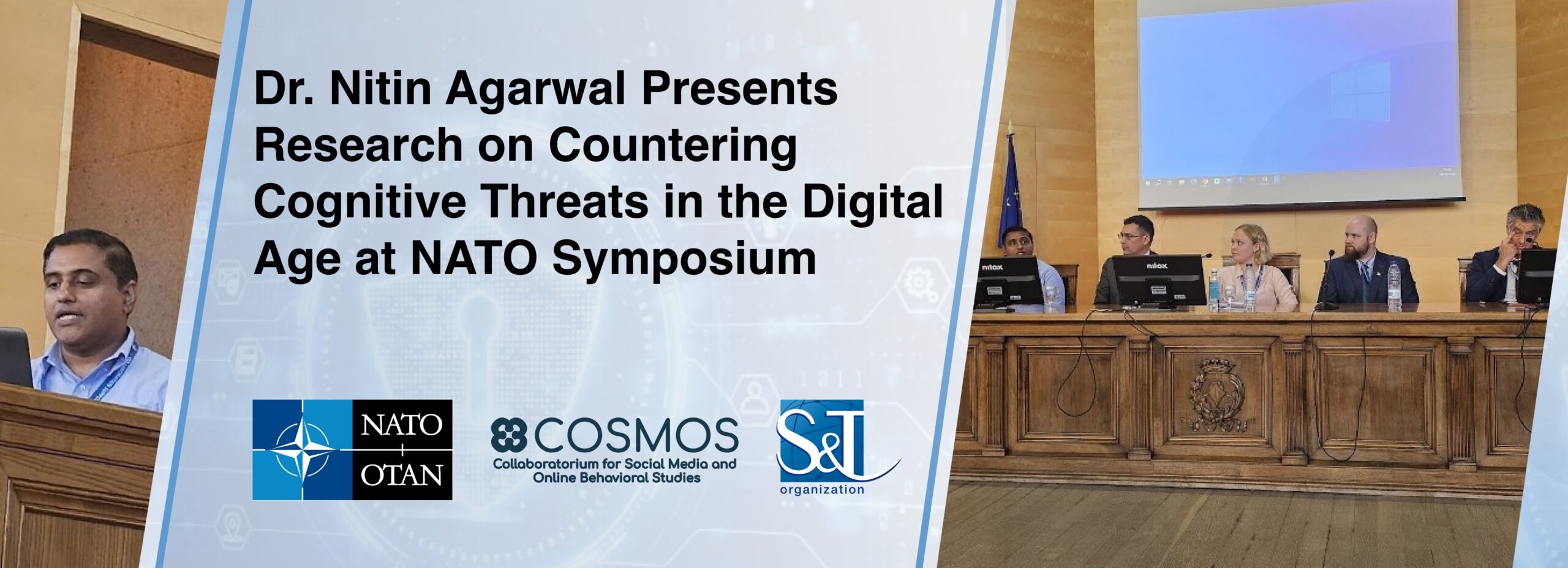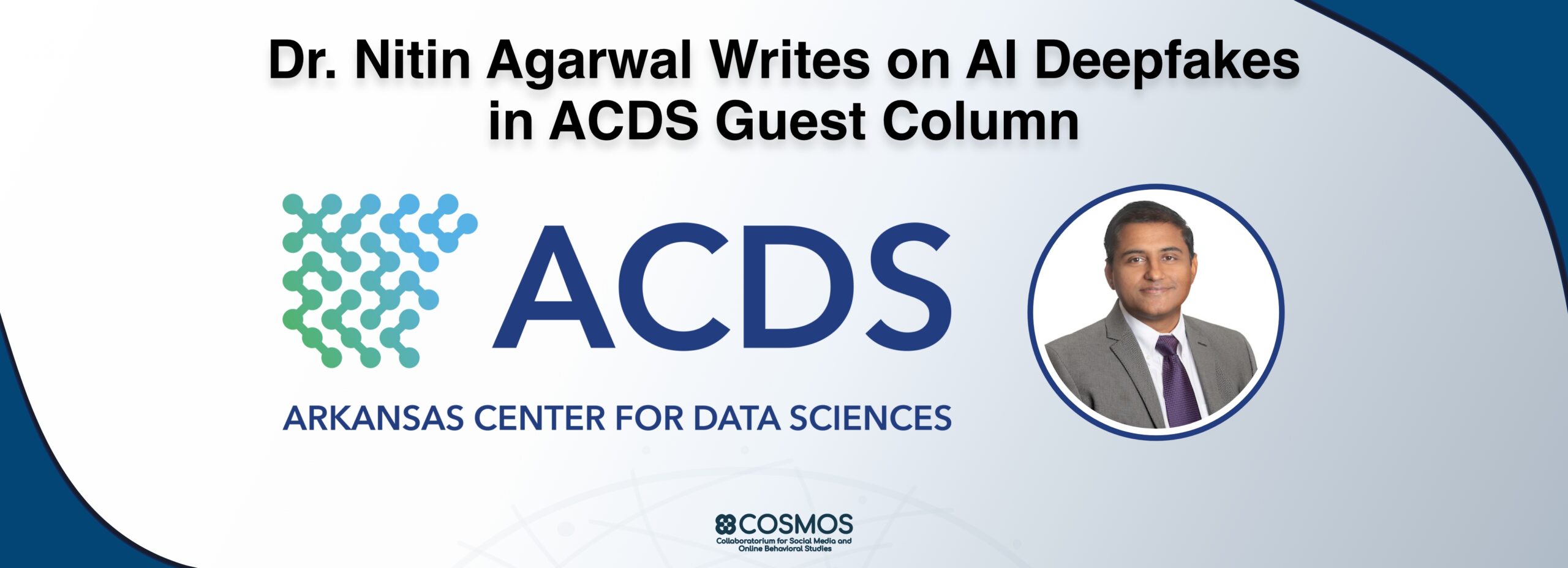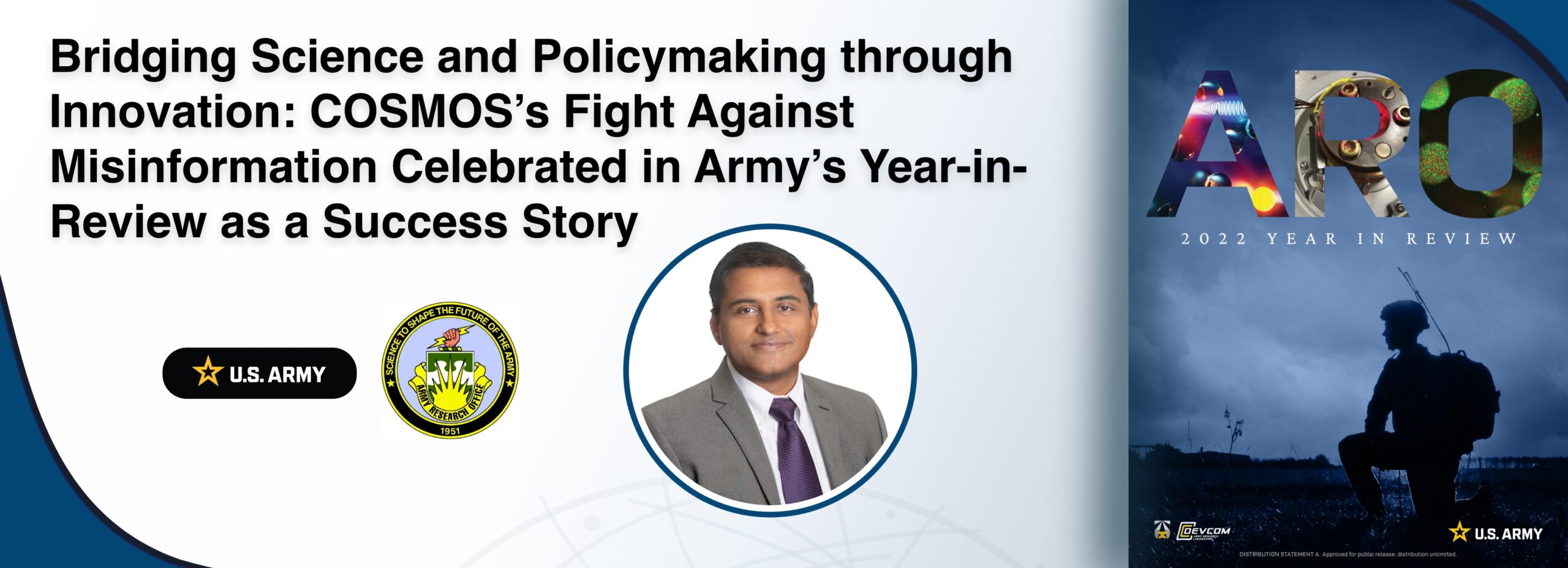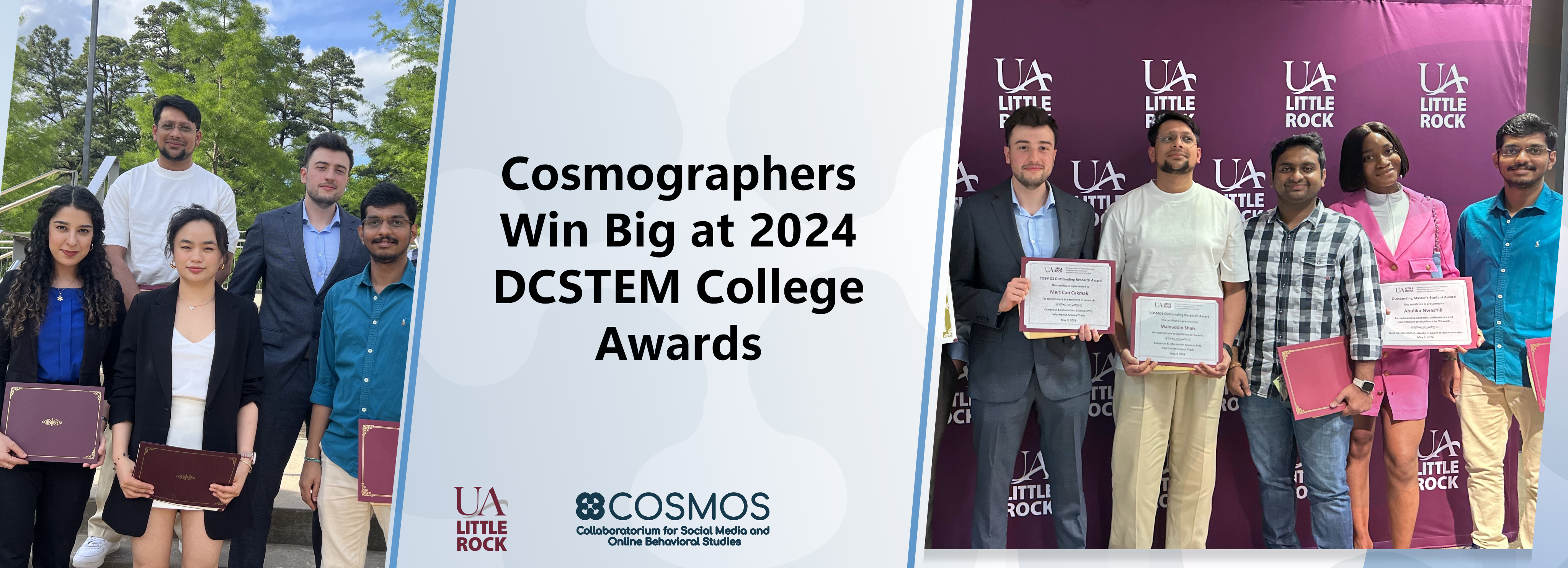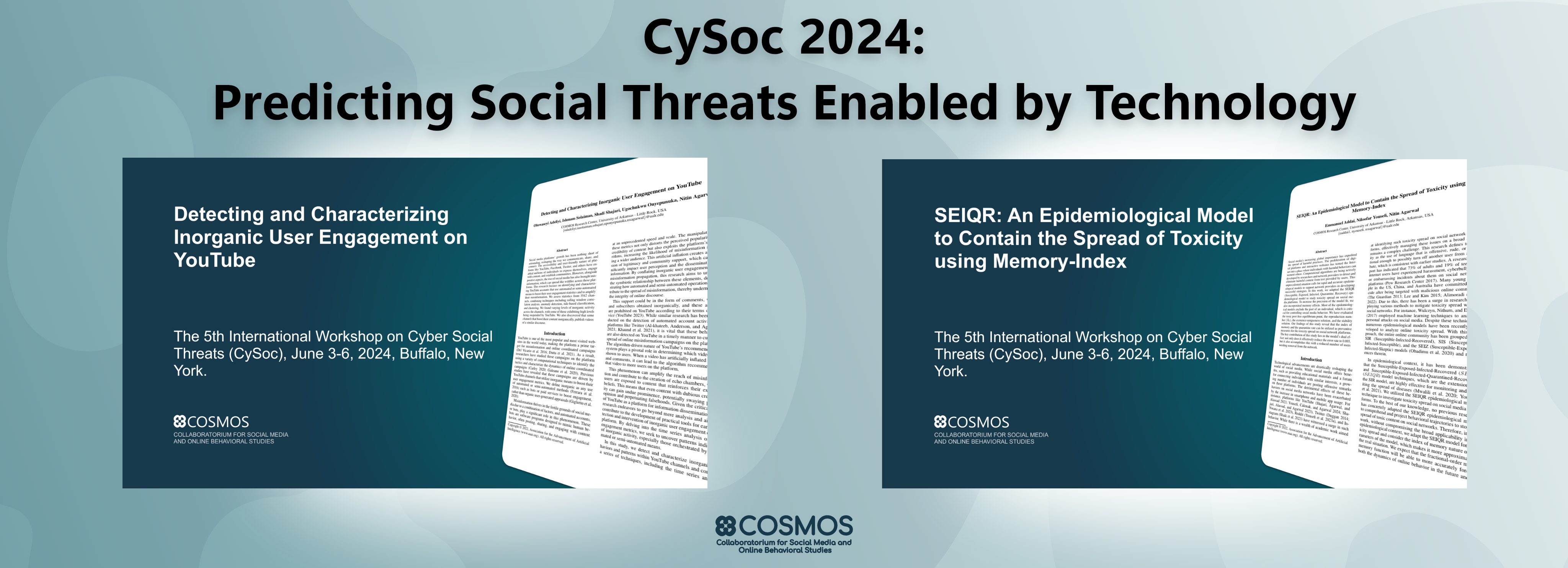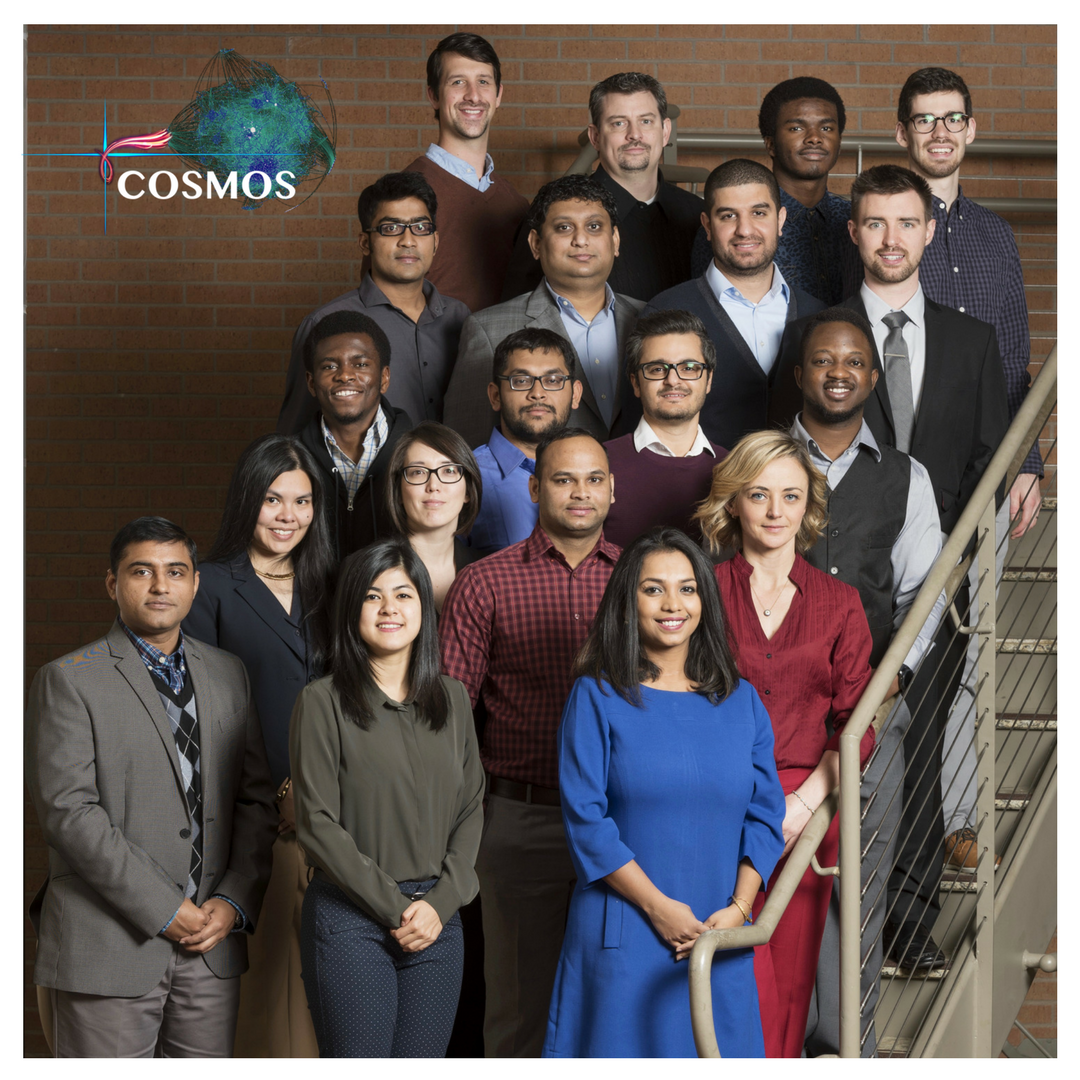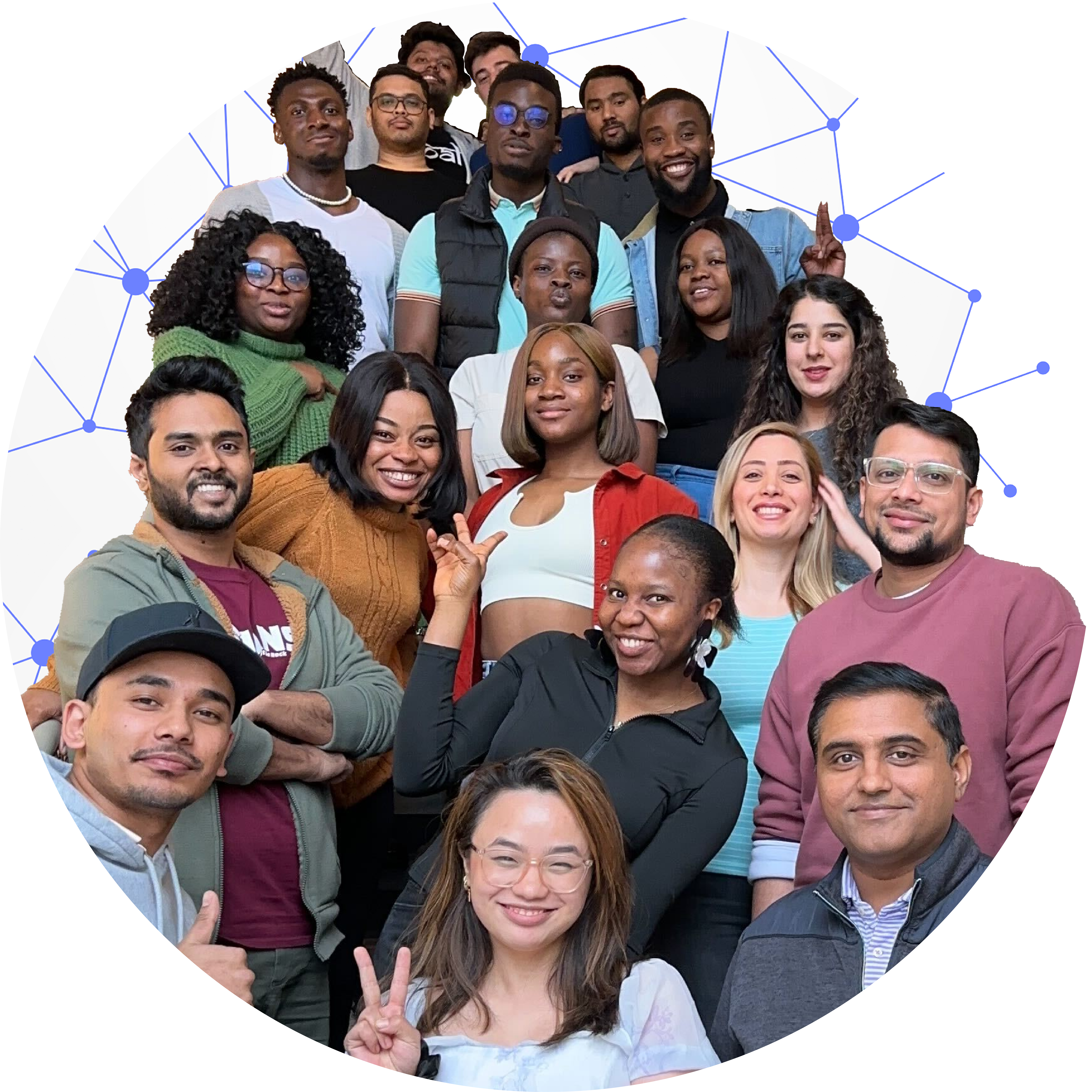COSMOS is at the vanguard of the ever-evolving field of social computing that brings together an interdisciplinary team of researchers from over 15 countries. Founded in 2015, COSMOS is developing big ‘social’ data analytical tools to understand digital behaviors and forecast trends to achieve social good.
At COSMOS, we study the good, bad, and ugly aspects of our cyber social behaviors, including social movements, campaigns raising awareness about social issues, information and influence operations, mis/disinformation campaigns, computational and AI-based propaganda tactics, algorithmic warfare, and the rise of violent extremism. Aiming to strengthen our socio-cognitive security apparatus and help build community resiliency, these multi-year, multi-domain, and multicultural studies are supported by grants with a total funding of over $20 million from the U.S. National Science Foundation (NSF), U.S. Army Research Office (ARO), U.S. Office of Naval Research (ONR), U.S. Air Force Research Lab (AFRL), and U.S. Defense Advanced Research Projects Agency (DARPA).
Research at COSMOS has made foundational contributions to social network analysis, (deviant) behavior modeling, combatting socio-cognitive threats, group dynamics, influence, trust, collective action, social-cyber forensics, computational narratology, smart health, data mining, and privacy. Our research has examined anti-NATO and anti-West propaganda campaigns, COVID-19 mis/disinformation campaigns, elections, conflicts/wars, terrorism, and violent extremism in different regions of the world, specifically Canada, Europe, the Middle East, and the Indo-Pacific region. To further our mission to bridge science, society, and policy through technology and innovation, the research conducted at COSMOS is transitioned to usable software tools, recognized internationally by NATO and WHO, and at home by the U.S. Department of State’s Global Engagement Center and Arkansas Office of the Attorney General.
Nitin Agarwal, Ph.D.
Founding Director, COSMOS Research Center
Jerry L. Maulden-Entergy Chair and Donaghey Distinguished Professor of Information Science
University of Arkansas – Little Rock
The latest about COSMOS
ECIS 2024: Digital Futures Together
Research Spotlight: Simulating Mobs
Cosmographer Corner: New Students Join COSMOS
HICSS 2024: Research into Multimedia Social Mobilization
New Cosmographer Hire: Fadime Ledford hired as Grant Manager
Research Spotlight: Multimedia Datasets
ASONAM 2023: Bridging Disciplines in the Pursuit of Social Data Mining
From Caps and Gowns to New Horizons: December Graduation Stories
COSMOS Research covered by Arkansas Business
Complex Networks 2023: Advancements in International Network Research
CONNECT ON TWITTER:
Our students come from diverse backgrounds, and Acxiom scholarships help them achieve their dreams, goals, and aspirations! Read more at https://t.co/Cfloj3k71e
— Nitin Agarwal (@agarwalnitin) December 20, 2023
We are thrilled to receive a $5 million grant from the @ArmyResearchLab to combat socio-cognitive threats! Such insidious threats attempt to influence beliefs and behaviors and need to be considered modern weapons of cognitive hijacking. https://t.co/64umRYtW0u pic.twitter.com/fffELufptq
— Nitin Agarwal (@agarwalnitin) November 28, 2023


